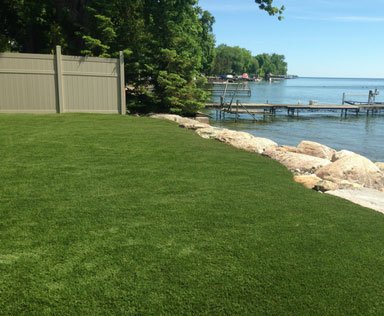PFAS, which stands for Per- and Polyfluoroalkyl Substances, are a large family of thousands of synthetic chemicals that have been used in industry and consumer goods worldwide since the 1940s. These chemicals are characterized by a chain of carbon atoms bonded to fluorine atoms, which is one of the strongest bonds in organic chemistry. This unique structure gives PFAS their heat, water, and oil resistance, making them highly valued in a wide range of applications.
Common uses of PFAS include non-stick cookware (like Teflon), stain-resistant fabrics and carpets, waterproof clothing, and some types of firefighting foam. They are also present in certain products to help resist grease, water, and oil. In the realm of consumer products, PFAS can be found in everything from pizza boxes and fast-food wrappers to waterproof mascara and shaving cream.
The widespread use of PFAS comes with significant environmental and health concerns. PFAS chemicals are highly persistent, which means they do not break down in the environment or the human body, leading to their accumulation over time. This persistence has led to widespread PFAS contamination of water, air, soil, and various food products.

Studies have linked certain PFAS chemicals to a range of health issues, including immune system effects, hormone disruption, high cholesterol, and increased risk of certain cancers. Due to their stability and persistence, these chemicals can bioaccumulate in wildlife and humans, leading to potentially harmful health effects over time.
The term “forever chemicals” aptly describes PFAS due to their extraordinary resistance to breaking down in the natural environment. This resilience stems from the strong carbon-fluorine bonds that make up PFAS. This resilience is what gives PFAS their advantageous properties, like resistance to heat and the ability to repel oil and water. But it’s also why these chemicals persist in the environment and in the bodies of living organisms for an incredibly long time—potentially indefinitely.
The persistence of PFAS in the environment means they can travel long distances, contaminate remote areas, and accumulate in the food chain. This accumulation can lead to increased exposure and potential health risks for humans and wildlife. PFAS have been found globally in drinking water, soil, air, and numerous food products. They have even been detected in the blood serum of wildlife and in the majority of the human population.
Their long-lasting presence in the environment, along with their inability to degrade, raise significant ecological and human health concerns. The potential health impacts of PFAS exposure include effects on the immune system, cholesterol levels, liver function, and fetal development. These dangerous substances also lead to an increased risk of certain cancers.
Given these properties and impacts, PFAS has become a focal point of environmental regulatory efforts and public health te. The calls for stricter controls and remediation strategies are only increasing.
The presence of PFAS in artificial grass is a concern that has gained attention in recent times, especially among environmentally conscious consumers and public health advocates. Remember, PFAS are used in a variety of industrial processes and consumer products for their durability and resistance to heat, water, and oil.

Recent research and investigations have found that some artificial turf products contain PFAS. These substances can be present in the grass blades, backing materials, or infill of the artificial turf. The exact composition and PFAS concentration can vary depending on the manufacturing processes and materials used.
However, it’s important to note that not all artificial turf products contain PFAS. Many manufacturers recognize the health and environmental concerns associated with PFAS and have taken steps to ensure their products are PFAS-free. All-Pro has been proactive in this regard. We have implemented rigorous testing and quality control measures. We work with manufacturing partners to avoid the use of PFAS in the production process and conduct independent validation to confirm the absence of these chemicals in our products.
At All-Pro we are committed to providing you with safe, PFAS-free artificial grass. Your safety is our priority, and we’ve taken steps to ensure that our products meet the highest safety standards.

Commitment to Safety and Environment: A’s dedication to providing safe and eco-friendly artificial turf is reflected in our proactive measures to exclude PFAS from all of our products. We understand the potential environmental and health risks posed by PFAS. And we can promise you that these harmful chemicals are not part of our manufacturing process.
Quality Control and Testing: To uphold our promise of PFAS-free products, All-Pro employs rigorous testing and quality control measures. We engage in independent validation processes to confirm that our artificial grass products are free from PFAS. This level of scrutiny is part of our broader commitment to producing high-quality, safe, and environmentally responsible products.
Transparent Manufacturing Process: All-Pro maintains transparency in our manufacturing process. We work closely with partners who share our commitment to a PFAS-free production approach. We guarantee that the raw materials used in our artificial turf are sourced from suppliers who do not use PFAS.
All-Pro’s Dedication to Safety
Safety is not just a feature but a cornerstone of every All-Pro product. We want to assure you that if you’ve used artificial grass in the past or are considering using our company in the future our manufacturer has had strict controls in their formulation of all our artificial grass materials for years.
We are always conscious of the health and well-being of our staff and our customers, kids, seniors, and pets.
By choosing All-Pro’s PFAS-free artificial turf, you are making a responsible decision toward both your health and the health of the environment. Our dedication to safety and quality reflects our commitment to be a leader in the synthetic turf industry. We will only provide products that you can trust to be safe, durable, and eco-friendly.
Studies have linked certain PFAS chemicals to a range of health issues, including immune system effects, hormone disruption, high cholesterol, and increased risk of certain cancers. Due to their stability and persistence, these chemicals can bioaccumulate in wildlife and humans, leading to potentially harmful health effects over time.
The term “forever chemicals” aptly describes PFAS due to their extraordinary resistance to breaking down in the natural environment. This resilience stems from the strong carbon-fluorine bonds that make up PFAS. This resilience is what gives PFAS their advantageous properties, like resistance to heat and the ability to repel oil and water. But it’s also why these chemicals persist in the environment and in the bodies of living organisms for an incredibly long time—potentially indefinitely.
The persistence of PFAS in the environment means they can travel long distances, contaminate remote areas, and accumulate in the food chain. This accumulation can lead to increased exposure and potential health risks for humans and wildlife. PFAS have been found globally in drinking water, soil, air, and numerous food products. They have even been detected in the blood serum of wildlife and in the majority of the human population.
Their long-lasting presence in the environment, along with their inability to degrade, raise significant ecological and human health concerns. The potential health impacts of PFAS exposure include effects on the immune system, cholesterol levels, liver function, and fetal development. These dangerous substances also lead to an increased risk of certain cancers.
Given these properties and impacts, PFAS has become a focal point of environmental regulatory efforts and public health te. The calls for stricter controls and remediation strategies are only increasing.
The presence of PFAS in artificial grass is a concern that has gained attention in recent times, especially among environmentally conscious consumers and public health advocates. Remember, PFAS are used in a variety of industrial processes and consumer products for their durability and resistance to heat, water, and oil.

Recent research and investigations have found that some artificial turf products contain PFAS. These substances can be present in the grass blades, backing materials, or infill of the artificial turf. The exact composition and PFAS concentration can vary depending on the manufacturing processes and materials used.
However, it’s important to note that not all artificial turf products contain PFAS. Many manufacturers recognize the health and environmental concerns associated with PFAS and have taken steps to ensure their products are PFAS-free. ProGreen has been proactive in this regard. We have implemented rigorous testing and quality control measures. We work with manufacturing partners to avoid the use of PFAS in the production process and conduct independent validation to confirm the absence of these chemicals in our products.
At All-Pro we are committed to providing you with safe, PFAS-free artificial grass. Your safety is our priority, and we’ve taken steps to ensure that our products meet the highest safety standards.

Commitment to Safety and Environment: A’s dedication to providing safe and eco-friendly artificial turf is reflected in our proactive measures to exclude PFAS from all of our products. We understand the potential environmental and health risks posed by PFAS. And we can promise you that these harmful chemicals are not part of our manufacturing process.
Quality Control and Testing: To uphold our promise of PFAS-free products, All-Pro employs rigorous testing and quality control measures. We engage in independent validation processes to confirm that our artificial grass products are free from PFAS. This level of scrutiny is part of our broader commitment to producing high-quality, safe, and environmentally responsible products.
Transparent Manufacturing Process: All-Pro maintains transparency in our manufacturing process. We work closely with partners who share our commitment to a PFAS-free production approach. We guarantee that the raw materials used in our artificial turf are sourced from suppliers who do not use PFAS.
All-Pro’s Dedication to Safety
Safety is not just a feature but a cornerstone of every All-Pro product. We want to assure you that if you’ve used artificial grass in the past or are considering using our company in the future our manufacturer has had strict controls in their formulation of all our artificial grass materials for years.
We are always conscious of the health and well-being of our staff and our customers, kids, seniors, and pets.
By choosing All-Pro’s PFAS-free artificial turf, you are making a responsible decision toward both your health and the health of the environment. Our dedication to safety and quality reflects our commitment to be a leader in the synthetic turf industry. We will only provide products that you can trust to be safe, durable, and eco-friendly.
+1-888-673-1011
+1-888-673-1011
+1-888-673-1011
+1-888-673-1011
+1-888-673-1011
+1-888-673-1011
+1-888-673-1011
+1-888-673-1011
+1-888-673-1011
+1-888-673-1011
+1-888-673-1011
+1-888-673-1011
+1-888-673-1011
+1-888-673-1011
